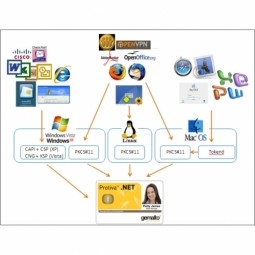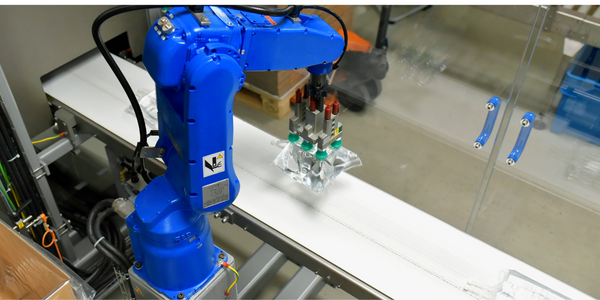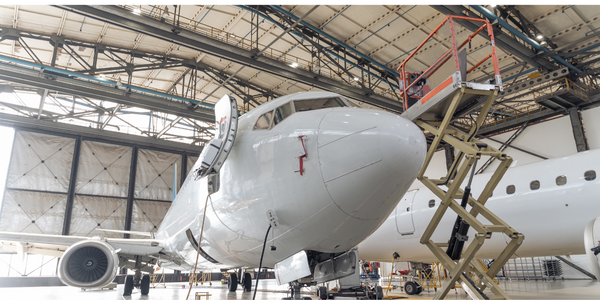Customer Company Size
Large Corporate
Region
- Europe
Country
- Belgium
Product
- InTouch
- System Platform
- Batch Management
- Historian
Tech Stack
- Profibus
- SCADA
- PLC
Implementation Scale
- Enterprise-wide Deployment
Impact Metrics
- Productivity Improvements
- Cost Savings
Technology Category
- Application Infrastructure & Middleware - API Integration & Management
Applicable Industries
- Life Sciences
Applicable Functions
- Discrete Manufacturing
- Quality Assurance
Use Cases
- Predictive Maintenance
- Process Control & Optimization
Services
- System Integration
About The Customer
Baxter S.A. is a global diversified healthcare company that applies a unique combination of expertise in medical devices, pharmaceuticals and biotechnology to develop products that advance patient care worldwide. Baxter’s Lessines, Belgium facility is responsible for manufacturing single and multiple compartment storage bags for administering nutriments to patients intravenously. To streamline its operations, manage operating costs and conform to the U.S. Food and Drug Administration’s 21 CFR Part 11 compliance standards, Baxter needed to revise its manufacturing facility processes to incorporate automation methods into a new production line.
The Challenge
Baxter S.A., a global diversified healthcare company, needed to revise its manufacturing facility processes to incorporate automation methods into a new production line. The new automation system needed to assist Baxter in achieving U.S. Food and Drug Administration (FDA) 21 CFR Part 11 compliance regulations. The automation system selected for the new Baxter production line had to be fully compatible with Baxter’s existing architecture and systems. The company required that the new system integrate Profibus-connected smart sensors into the new manufacturing line process. Production management had to be centralised and include reporting, analysis, traceability and performance monitoring to adhere to FDA 21 CFR Part 11 regulations as well as European compliance standards.
The Solution
To achieve this goal, Baxter selected Wonderware software from AVEVA to manage its new production line. Baxter implemented Batch Management for batch execution and genealogy reporting; InTouch HMI for process visualisation; and System Platform powered by Wonderware to provide a single, scalable platform for all SCADA, supervisory HMI and MES applications. The new manufacturing line not only had to double the production capacity, but also had to integrate each of the facility’s sub-systems to form a unified and automated manufacturing process. The new line is composed of six processes for preparing the various nutriments and filling the intravenous storage bags. The use of System Platform in conjunction with InTouch HMI provided Baxter with an open architecture framework that enabled the company to easily incorporate the various technologies operating in the plant.
Operational Impact
Quantitative Benefit

Case Study missing?
Start adding your own!
Register with your work email and create a new case study profile for your business.
Related Case Studies.

Case Study
Corporate Identity Solution Adds Convenience to Beckman Coulter
Beckman Coulter wanted to implement a single factor solution for physical and remote logical access to corporate network. Bechman Coulter's users were carrying smart card badges for doors, but also needed a one-time password token to access to our corporate network when they were not in the office. They wanted to simplify the process.

Case Study
Embracing Business Success in Real Time
· Increase control over growing Big Data to improve business decisions · Manage data for 28,000 biotechnology stockkeeping units in the fields of microbiology, molecular biology, animal cell cultures, plant tissue cultures, and lab ware for laboratory chemicals · Accelerate report generation and analysis with real-time data

Case Study
Flow Robotics: Scaling Up Production and Accelerating Product Development with IoT
Flow Robotics, a Danish manufacturer, developed flowbot™ ONE pipetting robots to alleviate the strain on bioanalysts in life-science laboratories and hospitals across Europe. These robots were designed to automate part of the testing process, speeding up the time it takes to produce results and reducing pressure on staff. However, the company faced challenges in scaling up production and accelerating product development. High workloads and physically challenging conditions have long been an issue for laboratory professionals. Flow Robotics estimates that around half of medical lab technicians carry out the same arm movements for at least a quarter of their working day. The American Society for Clinical Pathology reported that 85% of laboratory professionals feel burnt out; 36% struggle with inadequate staffing; and 32% face a heavy workload and pressure to complete all testing on time.
Case Study
Material Intelligence at Ethicon: Sustaining Medical Device Manufacturability and Improving Patient Care
Ethicon, a world-class medical devices company, faced several challenges in its operations. The rapid selection of manufacturing materials compliant in global markets was critical to assure patients, practitioners, and purchasing organizations of the biocompatibility of their medical devices. Ensuring supply chain continuity and minimizing risks of obsolescence for medical devices due to regulatory changes were also crucial in meeting Ethicon’s ongoing commitment to maintaining patient care. Furthermore, the engineers at Ethicon were developing the next generation of medical devices and needed to access historical material data to accelerate new product development. The process of centralizing and digitalizing its materials information was a significant challenge that Ethicon needed to overcome.

Case Study
Revolutionizing Aerospace Industry with 3D Printing: A 63% Lighter Titanium Part
GE Aviation, a renowned name in the aerospace industry, recognized the potential of 3D printing technology in transforming the sector. The primary challenge was to reduce the weight of the aerospace parts, which would directly impact the fuel costs. A lighter airplane would mean lower fuel consumption, leading to cost savings and a smaller carbon footprint. However, achieving this weight reduction without compromising the strength and functionality of the parts was a significant challenge. Traditional manufacturing methods were not able to provide the desired weight reduction while maintaining the required stiffness and strength of the parts. The challenge was to find a solution that could create strong, light, and functional aerospace parts.
Case Study
IWT's Transformation: Customizing with Efficiency in IoT
IWT, a company specializing in the design, manufacture, and installation of washing systems for the life sciences and pharmaceutical industries, faced a significant challenge in managing its wide product portfolio. The company manufactures 45 different models, 60% of which are customized to some degree. This high level of customization, combined with limited production quantities, necessitated a controlled process for managing the release of engineering changes. The goal was to achieve efficiency, reduce process time, and better coordinate production throughout the organization. The need for strict compliance in heavily regulated industries further complicated the situation. IWT's existing PLM journey with Dassault Systèmes’ SOLIDWORKS for 3D CAD and Enovia for managing CAD data and Bills of Materials (BOMs) was proving inadequate. The system had limited part classification, no workflow, and no tool to ensure data consistency. The management of non-CAD documents was also a challenge, with information often difficult to find and access.







